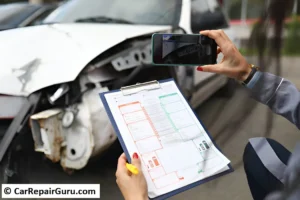
Accidents, whether minor or major, can be overwhelming and often lead to confusion about what steps to take next. One essential step in handling such situations is creating or accessing an accident report. But what exactly is this document, and why is it so important?
An accident report is a formal record detailing the events surrounding an accident. It includes vital information such as the time, location, parties involved, and a description of what occurred. This document serves as an official account, ensuring that all relevant details are captured accurately.
The importance of accident reports cannot be overstated. They play a critical role in legal disputes, insurance claims, and safety investigations. Whether you’re filing for compensation, determining liability, or identifying factors to prevent future incidents, an accident report provides the solid foundation needed to navigate these processes.
By understanding and utilizing accident reports effectively, you can protect your rights, streamline resolutions, and contribute to a safer environment for everyone involved.
Types of Accident Reports
Accident reports come in various forms, each tailored to specific scenarios. Whether it’s a minor fender bender, a workplace incident, or an aviation emergency, these reports are vital for documenting events accurately. Below are the most common types of accident reports and their significance:
Traffic Accident Reports
Traffic accidents are among the most frequently documented incidents. A traffic accident report provides a detailed account of events such as vehicle collisions, property damage, and injuries.
- How to Request a Traffic Accident Report: If you’re involved in a traffic accident, obtaining the official report is often a straightforward process. Visit your local law enforcement agency or use online platforms like BuyCrash to access it. Most states also allow requests through the Department of Motor Vehicles (DMV).
- Information in a Traffic Accident Report: A typical report includes crucial details such as vehicle descriptions, the extent of damages, statements from witnesses, and any citations issued. This information is indispensable for insurance claims and legal disputes.
Workplace Accident Reports
Workplace accidents, ranging from minor slips to severe injuries, require detailed documentation to ensure accountability and safety improvements.
- Why Workplace Accident Reports Matter: These reports are essential for identifying safety violations, addressing hazardous conditions, and processing workers’ compensation claims. They help employers maintain compliance with occupational safety standards and create safer working environments.
Aviation Accident Reports
In aviation, even minor accidents can have significant implications, making comprehensive reports a necessity.
- How Aviation Accident Reports Are Filed: Aviation accidents must be reported to authorities such as the Federal Aviation Administration (FAA). Detailed forms capturing every aspect of the incident are submitted promptly.
- Who Reviews Aviation Accident Reports: The FAA and the National Transportation Safety Board (NTSB) are responsible for analyzing these reports. Their findings often lead to crucial safety recommendations and industry-wide improvements.
Each type of accident report serves a unique purpose, offering transparency and accountability while fostering a safer environment for everyone.
How to Access Accident Reports

Obtaining an accident report is an essential step in resolving disputes, filing claims, or conducting investigations. Whether you prefer online platforms or in-person requests, there are multiple ways to access these critical documents.
Online Platforms for Accident Reports
Online platforms have made it more convenient than ever to retrieve accident reports.
- BuyCrash®: This service allows individuals to purchase traffic accident reports securely and quickly. By entering details like the report number, date of the incident, and location, you can obtain your document without visiting a local office.
- How to Request Accident Reports Online: Platforms such as CRASHDOCS.org streamline the process further. Simply visit their website, enter the required information, and download your report. Many states and municipalities now partner with these services, making it easy to access accident reports from anywhere.
State and Local Agencies
For those who prefer traditional methods or need reports not available online, state and local agencies are reliable options.
- Request Accident Reports from Local Authorities: Begin by identifying the appropriate department—typically the local police station or sheriff’s office. Provide them with key details like the accident’s date, location, and involved parties. Some agencies may require a small fee to process your request.
- Step-by-Step Guide:
- Contact the department to confirm the report is available.
- Complete a request form, either online or in person.
- Pay any associated fees.
- Receive your report via email, mail, or in person, depending on your preference.
In-Person Requests
If you need immediate access or prefer face-to-face interactions, in-person requests are a great option.
- Where to Get Accident Reports in Person: You can visit local police stations, the Department of Motor Vehicles (DMV), or specific municipal offices. Ensure you bring identification and any required documentation, such as a case number or proof of involvement.
- Tips for In-Person Requests:
- Call ahead to verify office hours and document availability.
- Be prepared to wait if the office is busy or the report requires additional processing time.
By leveraging these methods, you can access your accident report efficiently, whether online, through state agencies, or via in-person visits. Each option is designed to accommodate different preferences and needs, ensuring the process is as seamless as possible.
Filing an Accident Report
Filing an accident report is a crucial step following an accident, as it ensures that all necessary details are formally recorded. Understanding when and how to file one, as well as the potential legal implications, can save you from complications down the road.
When to File an Accident Report
Certain situations legally require you to file an accident report.
- Legal Requirements: In most states, you are required to file an accident report if:
- The accident results in significant property damage (amount thresholds vary by state).
- There are injuries or fatalities.
- A government-owned vehicle or property is involved.
- Failing to report an accident in these situations can result in fines, license suspension, or other penalties.
Information Needed to File
To complete an accident report accurately, you must provide a range of details.
- Details Required:
- Personal Information: Full name, contact details, and driver’s license number of the parties involved.
- Vehicle Information: License plate numbers, vehicle makes and models, and insurance policy details.
- Accident Details: Time, date, and location of the incident, along with a clear description of what happened.
- Witness Statements: Contact information and testimonies from anyone who witnessed the accident.
- Ensuring all fields are filled out correctly can expedite insurance claims and legal processes.
Legal Implications
Failing to file an accident report when required can have serious consequences.
- Consequences of Not Filing:
- Insurance Complications: Without an official report, insurers may deny claims, leaving you liable for damages or medical costs.
- Legal Issues: In some jurisdictions, not filing a report is considered a criminal offense, leading to fines or even misdemeanor charges.
- Dispute Challenges: Without documented evidence, proving fault or defending against accusations becomes significantly harder.
Filing an accident report promptly and accurately is not only a legal obligation in many cases but also a key step in protecting your rights and interests. By adhering to legal requirements and providing thorough details, you can navigate the aftermath of an accident more smoothly.
Understanding the Contents of an Accident Report

An accident report serves as a comprehensive document that records all critical details about an incident. Whether for legal, insurance, or investigative purposes, understanding its structure and terminology can help you navigate its contents effectively.
Common Sections in an Accident Report
Most accident reports follow a standard format, capturing the essential details of the incident.
- What is Included:
- Personal Details: Names, addresses, and contact information of all parties involved, including drivers, passengers, and witnesses.
- Description of the Accident: A narrative account of how the accident occurred, often based on statements from those involved and any witnesses.
- Contributing Factors: Information about external influences such as weather, road conditions, traffic signals, and visibility that may have played a role in the accident.
- Damage Assessment: Documentation of the damage to vehicles, property, and any reported injuries.
- Officer’s Observations: Notes from responding officers, including their interpretation of events and any citations or violations issued.
Codes and Terminology in Accident Reports
Accident reports often include abbreviations and codes to simplify the documentation process.
- Decoding Accident Report Terminology:
- “PDO” (Property Damage Only): Indicates an accident without injuries.
- “R/O” (Reporting Officer): The officer responsible for filing the report.
- “TC” (Traffic Collision): Another term for an accident.
- Diagrams: Many reports include sketches illustrating the positioning of vehicles and the accident sequence.
- Other Codes: Numeric or alphanumeric codes may correspond to specific traffic violations or contributing factors like “01” for speeding or “WX” for weather-related issues.
Understanding these sections and terms ensures you can interpret the report accurately and use it effectively for claims, legal matters, or safety analysis. Familiarizing yourself with the structure and language of accident reports can also help identify any errors or omissions that need to be corrected.
Privacy and Confidentiality Concerns
Accident reports contain sensitive personal and legal information, making privacy and confidentiality crucial. Knowing who can access these reports and how to protect your data is essential to safeguarding your information.
Who Can Access Accident Reports
Access to accident reports varies depending on local laws and the type of incident.
- Public and Restricted Access:
- Authorized Parties: In most cases, only those directly involved in the accident—drivers, passengers, or property owners—can request a copy of the report. Insurers and legal representatives may also access the report with proper authorization.
- Law Enforcement and Courts: Police and judicial entities have unrestricted access to accident reports for investigations and legal proceedings.
- General Public: In some jurisdictions, accident reports are considered public records and may be accessible to others. However, specific details such as personal information are often redacted to maintain privacy.
Protecting Personal Information
When handling accident reports, it’s important to take steps to safeguard your data.
- Safety Precautions:
- Verify Requests: Only share your report with trusted parties, such as insurers or legal representatives. Always confirm the identity of the requesting party.
- Secure Copies: Keep digital copies stored on secure devices and physical copies in a safe place.
- Redact Unnecessary Details: Before sharing a report, ensure sensitive information, such as Social Security numbers or private addresses, is not visible unless required.
- Use Official Channels: Always request and submit accident reports through authorized platforms or in-person visits to ensure data integrity.
By understanding access limitations and following safety practices, you can protect your personal information while ensuring proper use of your accident report.
Recent Developments in Accident Reporting

The field of accident reporting has undergone significant advancements, driven by technology and evolving legal frameworks. These developments aim to simplify the process for individuals and improve accuracy and accessibility.
Technological Advancements in Reporting
Digital tools have revolutionized how accident reports are filed and accessed, making the process more efficient for all parties involved.
- Digital Tools for Filing Accident Reports:
- Online Reporting Systems: Many law enforcement agencies now offer platforms for filing accident reports online. These systems allow individuals to report minor incidents without visiting a police station.
- Mobile Apps: Mobile applications, such as collision reporting apps, enable users to input incident details, upload photos, and even locate the nearest reporting station.
- Automated Reports: Advanced vehicles equipped with telematics systems can automatically generate accident data, such as collision force and airbag deployment, to assist in creating detailed reports.
- Benefits: Digital tools reduce human error, speed up processing times, and provide easier access to reports for insurance claims and legal needs.
Policy Changes
Changes in legislation continue to shape how accident reports are filed and accessed.
- New Laws Affecting Accident Reports:
- Standardized Formats: Some jurisdictions are introducing standardized digital templates for accident reports to ensure uniformity and clarity across regions.
- Enhanced Privacy Regulations: New data protection laws limit the sharing of personal information in accident reports, safeguarding individuals from identity theft and unauthorized use.
- Mandatory Reporting Thresholds: Adjustments to property damage or injury thresholds for mandatory reporting help prioritize serious incidents, reducing the burden on reporting systems.
- Keeping Updated: Regularly check state or local government websites to stay informed about changes to accident reporting policies.
These advancements and policy updates are streamlining the accident reporting process while ensuring compliance with modern privacy and safety standards. Staying informed and utilizing available tools can make managing accident reports easier and more secure.
Conclusion
Accident reports play a critical role in documenting the details of an incident, making them invaluable for legal, insurance, and safety purposes. They provide an official record that can protect your rights, support claims, and aid in investigations. Understanding the importance of these reports and the process for filing and accessing them ensures you are prepared to handle any accident situation effectively.
Take advantage of the numerous resources available, such as online platforms and local agencies, to file and retrieve accident reports when needed. Staying informed about recent advancements and legal requirements will help you navigate the process with confidence.
Remember, filing an accurate and timely accident report is not just a legal obligation but also a proactive step in safeguarding your interests and promoting accountability. By being diligent, you can ensure that your accident report serves as a reliable resource in resolving disputes and addressing safety concerns.
accident report FAQ:
Q1: What is an accident report?
A1: An accident report is a formal document detailing the facts of an accident. It includes information like the parties involved, damages, injuries, and the circumstances surrounding the accident.
Q2: How can I access a traffic accident report?
A2: You can request a traffic accident report online through services like BuyCrash, or by contacting your local law enforcement agency or DMV office.
Q3: What details are required to file an accident report?
A3: To file an accident report, you need details such as your name, contact information, the location of the accident, vehicle information, and any witness statements.
Q4: Can anyone access my accident report?
A4: Some accident reports are public records and can be accessed by anyone, while others may be restricted due to privacy concerns. Check with the relevant authorities to determine access.
Q5: What happens if I don’t file an accident report?
A5: Failing to file an accident report when required can lead to legal consequences, especially if the accident involves significant damages or injuries.






